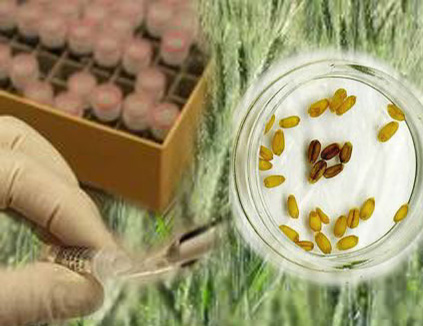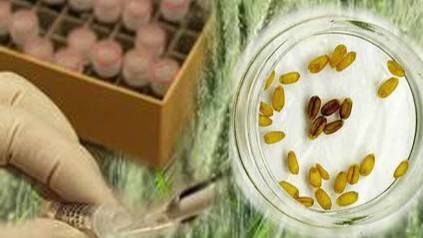Scientists: We’ve cracked wheat’s genetic code
Source: ctv.ca

British scientists have decoded the genetic sequence of wheat -- one of the world’s oldest and most important crops -- a development they hope could help breed better strains of the global food staple.
Wheat is grown across more of the world’s farmland than any other cereal, and researchers said Friday they’re posting its genetic code on the Internet in the hope that farmers can use it as a tool to help improve their crops.
University of Liverpool scientist Neil Hall said that the code would serve as "the reference -- the starting point that new technology and new science can be built upon."
He said that, for example, the information could help farmers better identify genetic variations responsible for disease resistance, drought tolerance and yield. Although the genetic sequence being published Friday remains a rough draft, and additional strains of wheat need to be analyzed for the work to be truly useful, Hall predicted it wouldn’t take long for his work to make an impact in the field.
"Hopefully the benefit of this work will come through in the next five years," he said.
Among the potential benefits: lower prices for bread and greater food security for the world’s poor.
Wheat is a relative latecomer to the world of DNA mapping. This year marks the tenth anniversary of the date the human genome was laid bare. Other crops have had their genetic codes unscrambled within the past few years -- rice in 2005, corn in 2009, and soybeans earlier this year.
The reason, Hall said, was that wheat’s genetic code is massive -- far larger than corn or rice and five times the length of the one carried by humans. Strains such as the Chinese spring wheat analyzed by Hall’s team carry six copies of the same gene (most creatures carry two.) Wheat in general has a tangled ancestry, tracing its descent from three different species of wild grass.
But techniques have improved dramatically over the past decade, and scientists were able to complete the sequence in about a year.
The cracking of wheat’s code comes at a time when prices have zoomed up in the wake of crop failures in Russia. Concerns over climate change, water shortages and population growth have loomed in the background for years.
Wheat physiologist Matthew Reynolds, of the Mexico-based International Maize and Wheat Improvement Center, said he hoped the sequence would help create crops better able to meet those challenges.
"Such varieties are crucial to meet increased demand from growing and more prosperous populations, confront the challenges of climate change and looming scarcities of land, water, and fertilizer, and avoid global food shortages and price spikes that particularly harm the poor," he was quoted as saying by the BBC.
But he told the broadcaster that improved crop management techniques could be just as important as genetic advances.
Article from: ctv.ca






















